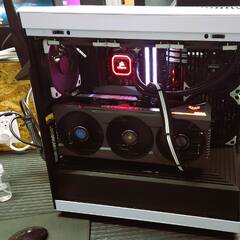My prof marked these questions wrong
Universal Serial Bus(USB) is a protocol, not a device. It's like PCIe, you can connect a multitude of devices to it, including forms of solid state drives(such as USB drives). USB is just a protocol that devices use to communicate. If you answered "True" to this question, then yes, your answer was incorrect.
Solid state devices store data in memory chips, similar to how RAM or SD cards work. DRAM modules and SD cards are slightly different, but very similar to standard SSDs. USB flash drives are basically tiny SSDs that communicate via the Universal Serial Bus as opposed to SATA, PCIe, or NVMe.
If you answered anything other than "memory chips", your answer was incorrect.
CDs and DVDs are optical media, tape drives are magnetic, "solid objects" and "moving parts" are misdirections.

(2).thumb.gif.6675f0fdeee7353531e6098728f50eab.gif)






.thumb.jpeg.9babd505c85c11addf31a285a02547cc.jpeg)









Create an account or sign in to comment
You need to be a member in order to leave a comment
Create an account
Sign up for a new account in our community. It's easy!
Register a new accountSign in
Already have an account? Sign in here.
Sign In Now